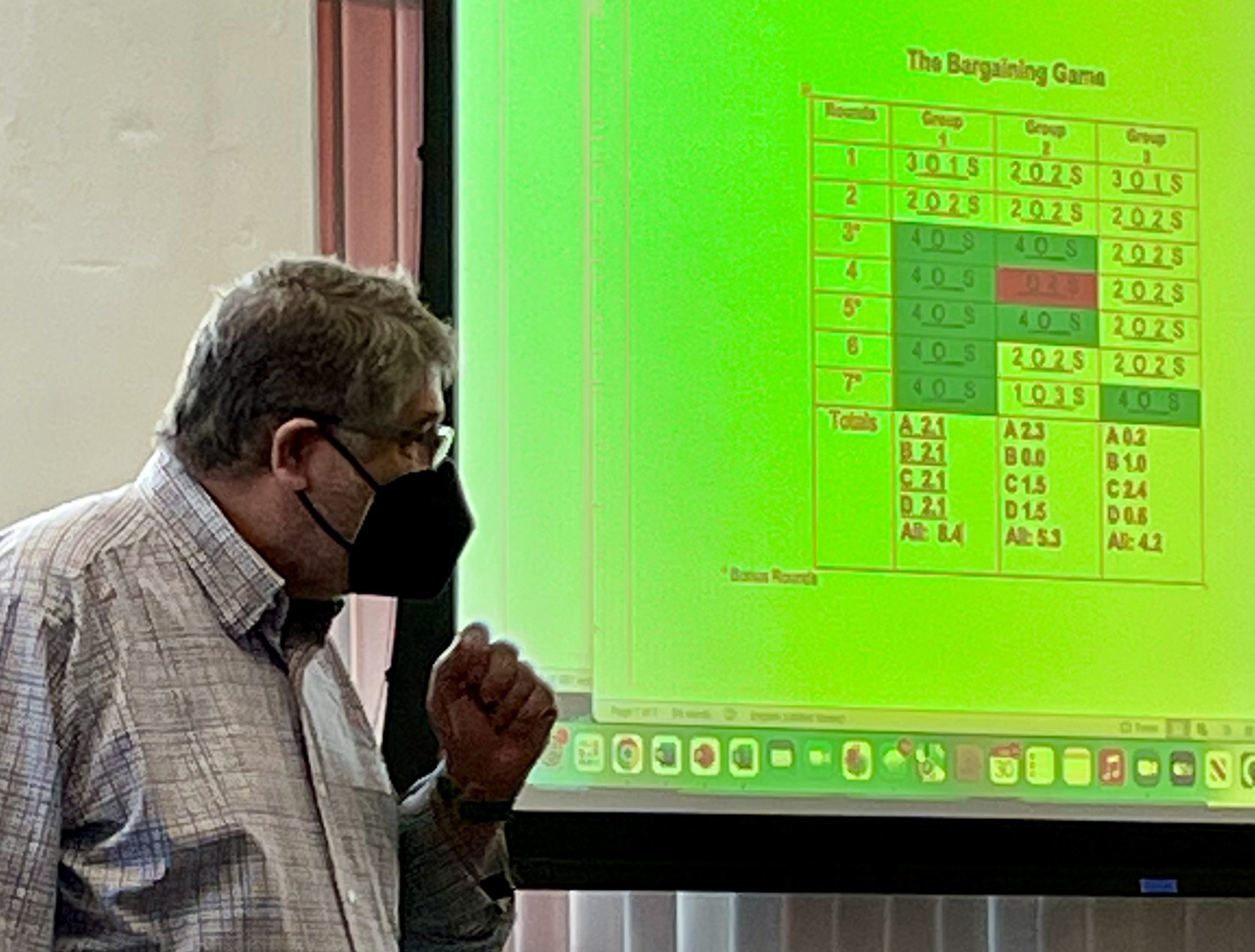Current Highlights
Teams from SHARE and UMass Memorial continue our weekly meeting schedule for Contract Negotiations. This week was the second of two sessions facilitated by professor Joel Cutcher-Gershenfeld to lay the groundwork for our process. (Read about our first session here.)
The teams worked to set ground rules for negotiations, and to name likely subcommittees that would focus on specific subjects.
Dr. Cutcher-Gershenfeld has told us that leaders at the Federal Mediation and Conciliation Service (FMCS) have shown interest in the innovative ways that SHARE and UMass Memorial negotiate together, and have asked to observe some of our discussions.
Hopes and Fears, Speed and Money
Last week, each team independently assessed the current union-management relations, and named its hopes and fears for negotiations. During this session, Dr. Cutcher-Gershenfeld shared those results.
Developing a Winning Strategy : The teams had some “fun with a purpose,” as Dr. Cutcher-Gershenfeld puts it, participating in “The Stakeholder Bargaining Game,” where the objective is to bargain for as much money as you can get. The outcome of our game was typical, we were told, and showed that groups tend to come out better financially if they choose a more cooperative stance rather than a coercive one. The group that came out with the most money – by far – was the most cooperative, and demonstrated that the winning strategy is to change the rules of the game.
There are a lot of interests to consider. Both teams clearly want to continue our approach to partnership, both want to make our hospital successful, and both agree that the Standards of Respect should be more deeply experienced in the day-to-day by all caregivers.
At the top of our lists, both teams clearly indicated a strong desire to come to an agreement about raises, recognizing how rapidly the economy is changing, and the importance of retaining and recruiting strong staff for our hospital.
Why is FMCS interested in how we negotiate?
The FMCS is an independent government agency whose mission is to preserve and promote labor-management peace and cooperation. Though they encourage Labor-Management partnerships and interest-based bargaining methods, those remain relatively uncommon. SHARE and UMass Memorial’s experiences with partnership show that the successes of our strategy continue to build. And we’re continuing to pioneer new ideas.
Often in bargaining, developing a broader perspective can help drive consensus . . . as negotiator William Ury puts it, two sides often come to agreement by “going to the ‘third side.’” One new development we’re exploring is to get more direct input from patients, consulting with UMass Memorial’s own Patient-Family Advisory Council as a way of aligning our interests and truly making our hospital the best place to get and give care.
What’s Next?
Next Thursday, both sides will deliver their introductory statements. And, we will spend time doing individual introductions – we find that improving relationships makes for more productive discussions and better conclusions.
